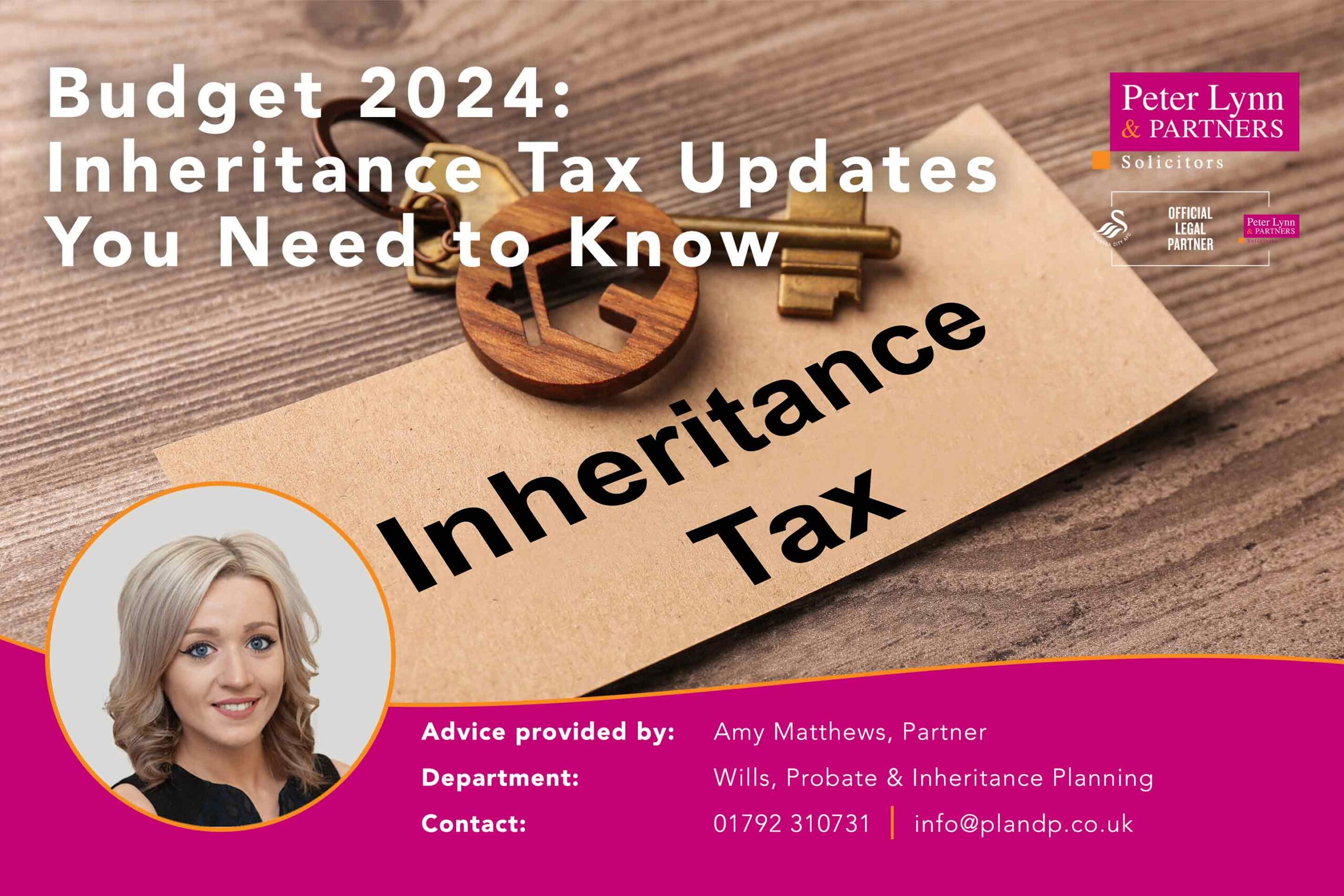Budget 2024: Inheritance Tax Updates You Need to Know

Chancellor Rachel Reeves confirmed changes to inheritance tax (IHT) in the 2024 Budget as part of her “tax rise package” to aim to raise £40 billion.
There are three key changes you need to be aware of:
Nil Rate Band Freeze
Currently, each person has a tax-free allowance of £325,000. It was confirmed in the Budget that this threshold will be frozen until 2030.
This means that the first £325,000 can be inherited tax-free but this figure can rise to £500,000 for residences left to direct decedents, and up to £1m for married or civil partnered couples combining their allowances. Values over the applicable threshold will be taxed at 40%*.
The decision to freeze the figure as opposed to increasing it in line with inflation means that many people will likely find themselves caught in the IHT trap.
Amy Matthews, partner and head of the Wills, Probate & Inheritance Planning team at Peter Lynn and Partners said, “The decision to continue the freeze on the IHT nil rate band at £325,000 will pull many more estates, which many would consider relatively modest, into the inheritance tax net.
The NRB has been frozen since 2009 and if it had risen in line with inflation, it should now be £503,879 so freezing this until 2030 will make this threshold even more antiquated. We are already seeing record-breaking IHT receipts, and this change will compound this.”
Changes to the IHT treatment of Pensions
The Chancellor also announced that inherited pensions will be brought into the IHT bracket from April 2027.
Currently, private pensions have many benefits, attracting tax relief and being excluded from inheritance tax. Experts are now warning this change means people will have to rethink how they use pensions in retirement.
In practice, this means when an individual dies they can still pass on the proceeds, but the pension pot will get added to property and shares as part of potentially chargeable assets for IHT calculations.
The way in which retirement planning is approached will likely need to be reconsidered as Amy elaborated:
“It seems likely that pensions will be used less for passing wealth to the next generation and we could see an increase of gifting during the client’s lifetime to limit taxation on death.”
Agricultural and Business Property Relief cap
From April 2026, the reliefs currently applicable will be capped at £1million. Currently, the rate of 100% relief will only extend to the first £1 million of combined agricultural and business property in excess of all existing nil-rate bands and exemptions. Over that amount, the relief will be 50%.
The allowance covers property in the estate at death, failed potentially exempt transfers in the seven years before death, and chargeable lifetime transfers where there is an immediate lifetime charge. To prevent forestalling, the new rules will apply for lifetime transfers on or after 30 October 2024 if the donor dies on or after 6 April 2026.
Whilst Agricultural Property Relief (APR) is only able to be used for agricultural purposes, Business Property Relief (BPR) has evolved from its original purpose, being to assist in ensuring businesses are passed down through generations to become a regularly utilised mechanism as part of lifetime and tax planning endeavours.
Family farms will particularly be hard hit and to avoid the risk of the asset being sold to pay any tax liability, succession planning advice should be obtained.
So, if you would like to pass on as much as possible to your loved ones rather than the tax man, we recommend you arrange a meeting with our Wills and Inheritance Planning lawyers to update your existing Will and make it as tax-efficient as possible in line with the new changes.
Contact:
➤ SA1 – 01792 450010
➤ Mumbles – 01792 369303
➤ Walter Road – 01792 643677
➤ Morriston – 01792 310731
➤ Llanelli – 01554 788280
➤ Ammanford 01269 597978
➤ Pontardawe – 01792 863633
➤ Ystradgynlais – 01639 842709
*additional allowances or reliefs might apply and we recommend that you seek professional advice.